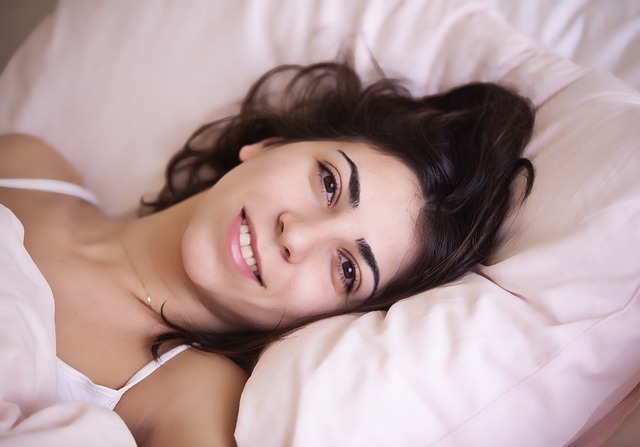Each of us has an internal body clock called the Suprachiasmatic Nucleus that regulates our daily sleep-wake patterns. This is often referred to as the “Body Clock” and it governs the release and timing of most mood, energy and sleep related hormones.
The body clock is dependant on light signals to function properly each day, dawn and dusk allows us to know when wake up or go to sleep.
For many people their lifestyles, living conditions, work, health and other conditions don’t allow them to get the correct sleep-wake signals anymore.
When we don’t get these correct signals, our sleep – wake patterns suffer and this can develop into a sleep disorder. When we have disrupted sleep patterns our body becomes stressed from the release of hormones at incorrect times in the day.
Good quality sleep gives the body a chance to repair, recover and heal. We get our physiological recovery between 10pm and 12pm and our psychological and nervous system recovery between 2am and 6am.
If you are getting into bed at 12pm on a regular basis it means that you are missing two hours a night of your physical recovery. This can results in all sorts of aches pains and niggles that will not get better.
When our bodies are healthy we can get away with the odd late night here or there without affecting us too much.
However, when we abuse our sleep times on a regular basis, this becomes a major stress to the body, upsetting hormonal balance and causing adrenal fatigue.
When the body is under stress of any sort, the immune system suffers…THERE ARE NO EXCEPTIONS TO THIS!
Sometimes we cannot change our sleeping situation, for example, shift workers or parents with new babies. In these situations it is important to look after yourself in all other areas of your life to reduce overall load.
See the Six Foundation Life Principles on the website for more information. Our daily sleep-wake patterns are called circadian rhythms. ‘Circadian’ is Latin for ‘about a day’.
If you struggle with sleep a circadian rhythm disorder is probably a factor. The body clock uses signals like sunlight and darkness to know when to produce the active hormones and when to shut them down and release the nighttime withdrawal and sleep hormones.
Our bodies crave and need regularity in all areas of our lives and this is not just related to sleep. Our bodies thrive when we have regular eating, sleeping, hydration, exercise and other important life principles.
If we have the required regularity then our system will be in time with our body clock. When we loose the regularity that our system needs them we suffer in many areas.
Things That Inhibit Sleep
Many things can disrupt our sleep-wake cycles, working late in bright lights, especially florescent, electromagnetic stress from computers, TVs flickering, training at high intensities late in the evening, coffee, V drinks, sweet deserts.
Alcohol and sugar can both make you crash to sleep but then wake later in the night through a drop in blood sugar level, to find yourself tossing and turning in the early hours and feeling hungry.
Toxicity in the body is a common thing today as people eat more and more processed foods, bad fats, food colourings and preservatives. Entrainment is another factor.
People can retrain a sleep pattern with in 7 to 21 days, for example if you stay up till midnight for three weeks in a row your internal body clock will be trained to wait till midnight to start Cortisol reduction.
This means melatonin, the sleep recovery and repair hormone kick in very late and you will be robbed of recovery time.
This over time leads to chronic fatigue, adrenal stress, suppressed immune function and poor or impaired physiological repair resulting in aches pains and niggles.
Did You Know
When you get up in the night and switch on a light your sleep-wake centre will think the light is dawn and it will release Cortisol, serotonin and other alertness hormones.
This diminishes the melatonin (sleep hormone) and makes it difficult to resume your sleep. You get back into bed and you try to get back to sleep. Your body has gone into wake-up mode and this is why many people have trouble getting back to sleep.
Sleeping In The Day
If you have to sleep during the day I recommend that you always wear an eye mask and make the room as dark as possible. This will reduce the amount of light filtering through eye lids and assist in a better quality of nap or sleep.
This will allow you to get a far better quality of sleep and you will wake up feeling far more refreshed than if you try to sleep without one.
Tips To Assist You In Getting Good Quality Sleep
If you have a busy mind try writing your thoughts in a journal to get them out instead of them racing around in your head while trying to sleep.
As the evening goes you can assist with the reduction of Cortisol (stress hormone) from your body and increase melatonin (sleep hormone). There are many ways to do this and everyone will have something different that appeals to them.
Reduce Your Cortisol By:
- A hot relaxing bath
- Dim the lights
- Candles
- Massage
- Deep diaphragmatic breathing
- Meditations
- Soft music
- Positive reading
It is healthy for your sleep cycle if you do not go to bed with either a full or on an empty stomach. Eating a correct snack for your Metabolic Type will help greatly with the quality of your sleep.







Insomnia experiences are not pleasant at all. I tried many things to change this, from diet, maintaining a good body clock and even sleeping pills! Still, nothing worked. I looked at the wrong places to find the right treatment
I hope you found some good information in this article.